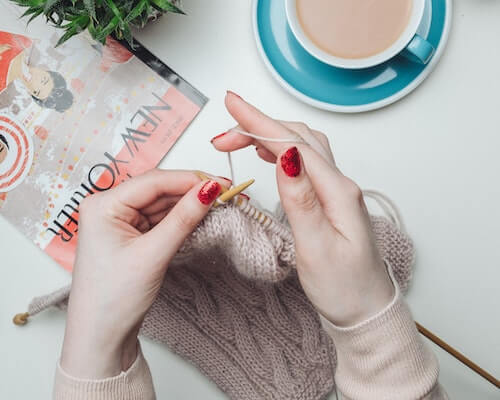It Isn’t Over Yet, But we Are Learning How to Cope

© Patrick Schneider
We have all heard the phrase “uncertain times” repeated like a broken record over the past seven months. Nobody really seems to have a clue what’s going on or when, if ever, we will return to our pre-pandemic lives. Since entering these uncharted waters, we’ve suddenly found ourselves sharing a collective experience with the entire globe. We are all experiencing lifestyle changes, together. We are facing new challenges, together. We are learning how to cope, together.
Coping mechanisms
But why is it that some people seem to be flourishing during this time, starting businesses, getting physically fit, and learning new skills, while others are stuck in a state of depression and inaction? The reason is that everybody chooses their own coping mechanisms. Some choose action, projects, and self-improvement, while others choose numbing, anger, or avoidance. While in most cases it’s obvious which behaviors are healthy or unhealthy, it’s important to note that both types of coping mechanisms are completely normal human responses to stressful and upsetting situations. The good news: if you are capable of choosing an unhealthy coping mechanism, you are also capable of choosing to replace it with a healthy one.
When learning how to cope, you must first focus on the things you can control, rather than those you cannot. Making a physical list of these items will help. Under “Things I Can Control,” you might list limiting your exposure to upsetting news, cutting back the amount of time spent on social media, or choosing to wash your hands thoroughly and wearing a mask in public. Listing “Things I Cannot Control” is helpful too. We know that in order to cope in a healthy way we must choose radical acceptance of our current situation, and learn to let go of these. For example, you cannot control whether other people follow social distancing practices, or whether stores will have a stock of the items you need, or how long this pandemic will last. In order to learn how to cope, you must choose to release these fears, and focus instead on the power you have over your own life.
Cognitive reappraisal
This process of categorizing information and controlling our response to it is called cognitive reappraisal. As mentioned earlier, negative emotions like fear, sadness, and anger are simply a feature of the human experience. For as long as you have a brain and spinal cord, you will experience these emotions. In fact, negative emotions can actually be a good thing; they can signal that something is important to you, or that something needs to change. So before you work on redirecting your negative emotions, take a moment to consider how they might shed light on your inner state. Then you will be ready to move onto cognitive reappraisal as a coping mechanism.

A simple way to practice cognitive reappraisal is by completing the phrase, “This is good because…” This helps you find something to be grateful for in a difficult situation. Perhaps during this pandemic, you have found yourself stuck inside with your entire family. To reframe this in a positive way, tell yourself, “This is good because I have been able to learn more about my family members and now I can understand them better.” This method works even if you have experienced great loss with seemingly no positive outcome. You can still choose to cope by saying, “This is good because I am learning how to find gratitude even when I’m grieving.”
Though simple in theory, reframing your perspective of a situation through cognitive reappraisal is a coping mechanism that requires time, patience, and practice. Be kind to yourself, and recognize that the emotional changes you are making in your inner being are massive and challenging. Emotional coping mechanisms are powerful because they help control your response to stressors, but it’s equally important to take simple physical action when possible. To best support your practice of emotional coping mechanisms, try implementing small tasks that will allow you to feel a sense of accomplishment and satisfaction when finished.
It’s a process
Since the beginning of the global pandemic, there has been a collective increase in sales of arts and craft supplies, household games, and home exercise equipment. And with good reason! Studies have shown that completing a task or project can boost mood and help divert attention away from stressors. Playing games and laughing with your housemates is a great way to trigger the release of endorphins, the body’s “feel-good” chemicals. And exercising even for fifteen minutes a day has been proven to combat feelings of depression and anxiety. Including simple activities like these is an excellent way to give yourself a break from the work you are doing to cope emotionally with this stressful situation. There has never been a better time to try something new, so don’t be afraid to branch out.

The most important thing to remember when learning how to cope is that it is a process. Changes will not happen overnight, and you shouldn’t get frustrated with yourself for slipping back into your old unhealthy coping mechanisms from time to time. Instead, take notice of small wins and areas of growth. And keep in mind that because of the events of this year that we have all encountered together, we will have collectively learned healthy coping mechanisms that we will carry with us throughout the rest of our lives.



